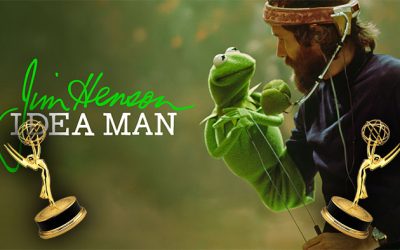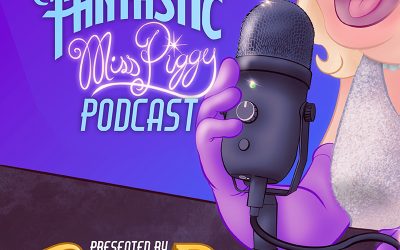 Very Familiar
Very Familiar
Wednesday, July 17
All of these Muppet albums that I’m reviewing this week were released back in 1993 and 1994, and so far, 1993 is feeling very familiar. I haven’t been a hardcore fan that long — really only since 1996 — but I know a Muppet Comeback year when I see one. New stuff, new appearances, new energy… and a little edge of hoping that you’ve forgotten that this didn’t quite work the last time.
The problem with the comeback year is, of course, that the remake is never quite as good as the original. It’s hard to know what the public is going to want the Muppets to be — should they be a nostalgic re-run, or a forward-looking next generation? The old stuff, — full of vaudeville routines, novelty songs and Broadway show-stoppers — may just seem corny. On the other hand, trying too hard to be modern and “hip” can be even more corny. What’s a franchise to do?
One answer, at least in 1993, was a CD made up of unreleased Rowlf tracks that Henson recorded in 1984. It’s the perfect release for a comeback year — brand-new vintage stuff, just like you would have remembered if it had ever been released in the first place. Pre-fab nostalgia.
This album tries to bypass the corny/hip problem by just being silly and sincere… and completely old-fashioned. It starts with the old Groucho Marx classic “Lydia the Tattooed Lady,” and danged if Rowlf doesn’t sound like the natural heir to Groucho. He’s got the wisecracks, he’s got the limited musical ability, and he’s got the whole lotta bluster. And apart from that, it’s a great little song.
But this is 1993. Who on Earth was buying novelty song albums in 1993? Especially albums with novelty songs from 1939 sung by fictional characters who were last seen on TV in the early 80’s? Everything about this album seems unlikely — oh, yeah, and then there’s that whole unfortunate problem of Ol’ Brown Ears himself not being around to promote the fact that he was back. Rowlf wasn’t actually dead, he wasn’t actually in retirement… he was just sort of in limbo, kind of like Al Gore. Who would buy this album?
And who cares, when Rowlf is so amazing? He introduces “Cottleston Pie” by explaining that this is the song Winnie the Pooh used to sing “when his brain felt fluffy.” Then he gives us a running commentary throughout the song: “Now, this is where the song does what you call, modulate.” After changing chords: “That’s G sharp minor.” It’s beautiful music you can giggle to. And how about this, during “When”: “When the whippoorwill is singing in the forest… That’s the whippoorwill right there.” What other performer would take the time to point out the whippoorwill? Not Neil Diamond, that’s for sure. Many’s the whippoorwill that’s passed Neil by without even a mention in his fan-club newsletter.
Rowlf gets to step out on his own here, and he’s beautiful. He’s rich and real and full of soul. There’s no performance about it, either from Jim, who disappears completely into Rowlf, or from Rowlf himself, who’s just a natural performer. Listening to him is like listening to Groucho or Victor Borge in full flight — effortless and funny and sad all at once.
Rowlf knows that he’s singing old-fashioned novelty songs. He knows it’s corny. He doesn’t care. The album will sell two copies. It doesn’t matter. It’s just so beautiful. I wouldn’t say that this is necessarily the way that Henson should approach the next comeback year — either this 25th anniversary year, or the next comeback, which I’m pencilling in for sometime around the fall of 2005 — but you have to respect it.
by Kynan Barker

 Very Familiar
Very Familiar

